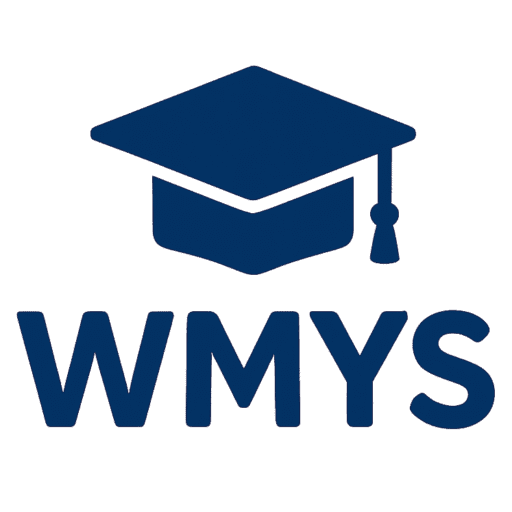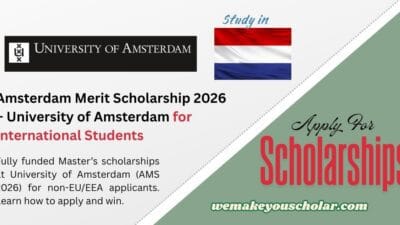Venice Fellowships Programme 2026 – A unique opportunity for international postgraduate students
If you’re a postgraduate student in the arts, humanities or creative industries and looking for an international experience that combines professional exposure, cultural immersion and creative development — the Venice Fellowships Programme 2026 could be your chance. With a residency opportunity at the prestigious Venice Biennale in Italy and backing from the British Council, this fellowship offers more than just travel — it offers a global platform.
This guide walks you through eligibility, funding, what you’ll do in Venice, how to apply (especially as an international student), key dates, and practical tips to maximise your chances of success.
What is the Venice Fellowships Programme?
The Venice Fellowships Programme is organised by the British Council and partner UK institutions. The programme sends postgraduate students and early-career creatives to Venice for approximately one month during the Biennale, where they act as Exhibition Ambassadors at the British Pavilion and work on their own creative or research project.
Successful fellows will:
- Represent the UK (or their institution) in an international arts context.
- Work in the British Pavilion, engaging visitors and supporting the exhibition.
- Develop a creative project or research piece inspired by the Biennale and Venice.
- Gain a grant to help cover travel, accommodation and living costs.
Why is this opportunity valuable for international students?
Here are some compelling reasons:
- Global exposure: The Venice Biennale attracts thousands of visitors and participants from around the world, offering a unique platform for visibility.
- Cultural immersion: Living and working in Venice for a month gives you first-hand experience of a major international arts event.
- Professional development: You’ll work as an ambassador in a high-profile space (the British Pavilion), enhance your CV, build networks and refine your practice.
- Grant support: The fellowship provides funding (see next section) so you can focus on the experience rather than expense.
Funding & Grant Details
The fellowship includes a grant of approximately £3,300 to assist with travel, accommodation and living costs during your residency period.
While the grant amount and terms may vary slightly depending on your institution or country of origin, the key elements are:
- Travel to/from Venice.
- Accommodation for the month-long residency.
- Living cost allowance while in Venice.
- Pre-fellowship training and workshops (online) arranged by the British Council and partner institution.
Eligibility Criteria (for International Postgraduate Students)
Although the programme primarily runs through UK institutions and UK students, many international students may still qualify via partner institutions. Key eligibility factors include:
- You must be a postgraduate student (MA, MPhil or PhD) in the Faculty of Arts & Humanities, or equivalent creative/academic discipline. Pre-fellowship calls emphasise arts, culture, creative industries.
- You must be enrolled at or connected with a UK higher education institution that is a partner to the Venice Fellowships Programme. (Check if your institution is a partner.)
- You should submit a credible creative/research project idea that aligns with the Biennale context and the British Pavilion mission.
- You must be able to travel and reside in Venice for a month during the Biennale period (May to November timeframe).
- You must comply with visa/travel requirements for Italy. Some documentation or residence status checks may apply depending on your nationality.
What the Fellowship Involves – Your Month in Venice
The residency has two key components:
Exhibition Ambassador Role
For part of your time you’ll act as an Exhibition Ambassador at the British Pavilion. This means you will:
- Engage with visitors, answer questions about the exhibition, facilitate dialogues and respond to a culturally diverse audience.
- Support the British Council team and Pavilion staff in operations, events and public engagement.
Your Independent Project
The rest of your time in Venice is dedicated to your own creative or research project. Examples include:
- A small exhibition installation or public-engagement piece.
- Research writing, documentation or practice-based research inspired by the Biennale theme.
- Collaborations with other fellows, curators or Venice networks.
Pre-Fellowship Training & Engagement
Before travelling, fellows are required to participate in online training and workshops (about 15 hours) organised by the British Council and partner institution.
Training topics include:
– The Venice Biennale history and context.
– The British Pavilion’s current exhibition and themes.
– Public engagement, gallery visitor interaction and cross-cultural communication.
– Health, safety, and logistical planning for the Venice stay.
Application Process & Timeline
Here’s how to apply as an international postgraduate student (through partner institution) for the 2026 fellowship scenario:
Step 1: Check Partner Institution Status
Confirm if your university (or host institution) is a recognised partner of the Venice Fellowships Programme. If not, contact the British Council to inquire about partner status.
Step 2: Prepare Your Application Materials
- Application Form (Word document typically, downloadable from your institution’s portal).
- Curriculum Vitae (CV) reflecting your creative/academic background.
- Project proposal outlining your month-in-Venice plan, research/creative piece, goals and how you’ll engage the Biennale context.
- Statement of motivation: why you want this fellowship, why Venice, how it relates to your future practice.
- Optional: audio/video submission (some institutions allow this instead of written form) – check specific call.
- Equality and Diversity Monitoring Form (usually voluntary).
Step 3: Submit by Deadline
Make sure you apply by the stated deadline at your institution (for example, some past calls have deadlines in late November). Applications after the deadline are typically not accepted.
Step 4: Shortlisting and Final Selection
The process usually follows:
- Your institution reviews and shortlists candidates, forwarding them to the British Council for final selection.
- Shortlisted candidates may be interviewed (online or in person) between the institution and the British Council.
- Final selection is confirmed in early January (for past cycles). You will then begin pre-fellowship training.
Key Dates (Indicative for 2026 Cycle)
- Application open: Usually mid-2025 (via your institution).
- Submission deadline: Often November (e.g., 24 November 2025 for a partner institution call at King’s). Provided as an example for 2025. (Use same timeframe for 2026 call.)
- Interview/Shortlisting: December 2025.
- Training & Workshops: March-April 2026.
- Residency in Venice: May–November 2026 during the Venice Biennale.
Selection Criteria – What Makes a Strong Candidate?
The selection panels look for creative individuals with potential and readiness. Some of the key criteria include:
- Quality of your project proposal – relevance, originality, feasibility.
- Evidence of prior creative or research work demonstrating your ability and ambition.
- Ability and willingness to engage as an ambassador – communication skills, intercultural competence.
- Alignment with the Biennale’s theme and the British Pavilion’s mission (which may emphasise cultural dialogue, innovation, diversity).
- Preparedness for living and working abroad for a month and for contributing to the programme community.
Tips to Improve Your Chances
- Visit past fellows’ profiles and project summaries (available via British Council or institution pages) to understand what types of work succeed.
- Create a clear project timeline – even though it’s just for one month, showing you’ve thought about the logistics, outputs and impact helps.
- Highlight how you’ll benefit from Venice and how you will bring back value to your home institution or creative community.
- If allowed, use audio/video application formats to showcase your voice and practice in an engaging way (check rules first).
- Attend Q&A sessions or information webinars hosted by your institution and the British Council – they often give clues to selection priorities.
What Happens After the Fellowship?
Once your month in Venice is complete, there are opportunities and obligations to consider:
- Return to your home institution and engage in follow-up activities, such as presentations or exhibitions sharing your Venice experience.
- Connect with the fellowship alumni network, creative peers and partners you met in Venice.
- Use your fellowship experience and project to propel your future career – mention it on applications, academic portfolios or creative proposals.
Frequently Asked Questions (FAQs)
Can international students apply directly for the Venice Fellowships Programme?
Yes, if your institution is a recognised partner of the programme. Many UK institutions host the call internally, so check whether your university is partnered or if you can apply through their internal process.
Does the fellowship include tuition or course fees?
No. The fellowship covers a month‐long residency and related grant. It is not a degree scholarship but a residency and professional-development opportunity.
What do I need to do for Italy visa/residence?
As an international student, you’ll need to check whether you require a Schengen visa, travel insurance and travel arrangements. Partner institutions and the British Council will provide guidance, but you are responsible for compliance.
Is knowledge of Italian required?
Not mandatory. The fellowship operates in English and your role and project are English-based. However, basic Italian may help with day-to-day living in Venice.
What if I cannot commit to the full month in Venice?
The full month residency is a core requirement. Partial stays or shorter terms are usually not accepted unless explicitly stated.
How competitive is this fellowship?
Competition is strong: only a limited number of fellowships are available annually (e.g., 60-70 fellows for certain cycles). A polished, well-prepared application is essential.
Final Words for Applicants
The Venice Fellowships Programme 2026 offers a rare combination of professional experience, creative development and international exposure — all wrapped into one month in one of the world’s most iconic cultural events. For international postgraduate students in arts, humanities or creative fields, it’s a chance to push your practice, build networks, and gain a platform outside your usual horizon.
If your ambition is strong, your project is clear and you are ready to make the most of the experience, this fellowship can be a springboard. Start early, read the guidance carefully, prepare a thoughtful application and view this as both opportunity and commitment.
Official link for details and application: Venice Fellowships Programme – British Council




